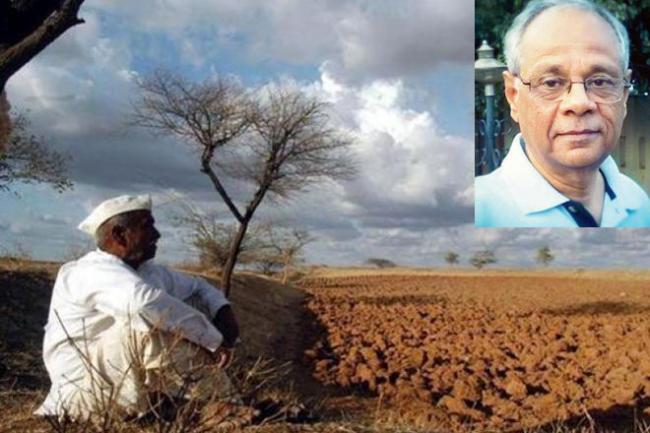How About Making Land Owners The Share Holders Of Projects?

Mahesh Vijapurkar
There is no doubt that land, especially farming land, ownership gives the farmer both his identity and roots. It is hard to be living divested of it, and that is one reason why each time a project is started, there is disquiet to agitation among that community. It is justifiable anger one sees for land acquisition implies impoverishment of the owner.
Be it the Pochampad project of yore, or Narmada dam, or a highway, or Singur or whatever, the land-provider has never been a beneficiary apart from the niggardly sums that were thrown at him after much delays due to red tape tangles. The agony is best understood by those who lose the land, and to those who benefit because of it elsewhere, the farmer is a mere abstract, at best a number in the statistic.
The agony is much worse when your land under submersion under a dam’s reservoir is yielding a monsoon-proofed gain to another in some distant place whom you may not even know. All that one had to show was some small change given in exchange for the precious asset. An asset hung on to regardless of the profitability being small, which is the hallmark of Indian agriculture. It is perpetuation inequity, if not worsening it.
When the Tatas were dispossessed of the land they had been assigned in Singur, there was a lot of sympathy for them, about how it would throw their business out of kilter, but the farmers’ plight voiced by a political party was considered disruptive. At that time, I had argued how instead of being thrown aside, the original land owner should be made a partner-entrepreneur in the project.
For, no project can be built without land. Even if it were to be floating in air, it would need to be tethered to the ground by, in a manner of speaking, a rope. That land, admittedly smaller than a plot to build upon, becomes critical and that much precious to the buyer. The old ‘eminent domain’ right of the State made a mockery of land ownership rights, and fortunately, the outlook is changing.
After a massive land pooling for Amaravati, Maharashtra has now moved to ensure that a landowner got an annuity on the land he is disposed of. A compensation of Rs30,000 per acre of non-irrigated land, Rs45,000 for seasonal farmland, and Rs60,000 has been decided for the land to be acquired for building a Mumbai-Nagpur ‘Samriddhi Corridor’ – a 750km long highway with development of nodes along it.
The government will hand over developed plots to individuals whose land has been acquired, in adjoining nodes (townships) which will come up along the ambitious 710km road passing through 10 districts. The government resolution states that the proportion of developed plot in the township would be 25 percent of the size of land given. These are for 10 years apart from the compensation under existing law and practices.
This, however, does not mean things have entirely changed. To re-emphasise my point, it is only changing, for now package can be called perfect, not when a person is uprooted from his moorings, where his personal moorings rest, and social linkages give meaning to the lives lived there. Further perfecting of the models has got to be a work in progress. And towards that direction, here are some suggestions.
Land owner could be made a partner by issuing equity by of shares as the promoter does to investors. That share in the stakes ought not to be in lieu of the market price owed to him but over and above that because he is bringing in a valuable asset. He is a joint-entrepreneur, so to say, and has to have some value, in contradistinction to a price put on his contribution. This would end industry looking at land as a cheap resource.
Another is to ensure that when a project on such acquired land pushes up prices of land around it over a period of time, the landowner who provided the initial patch be given an indexed further compensation. He who parted with land should not be the lowest gainer. If the project came up because of your land, then subsequent gains made by others should ensure a share for you too. Yes, complicated, but not impractical.





